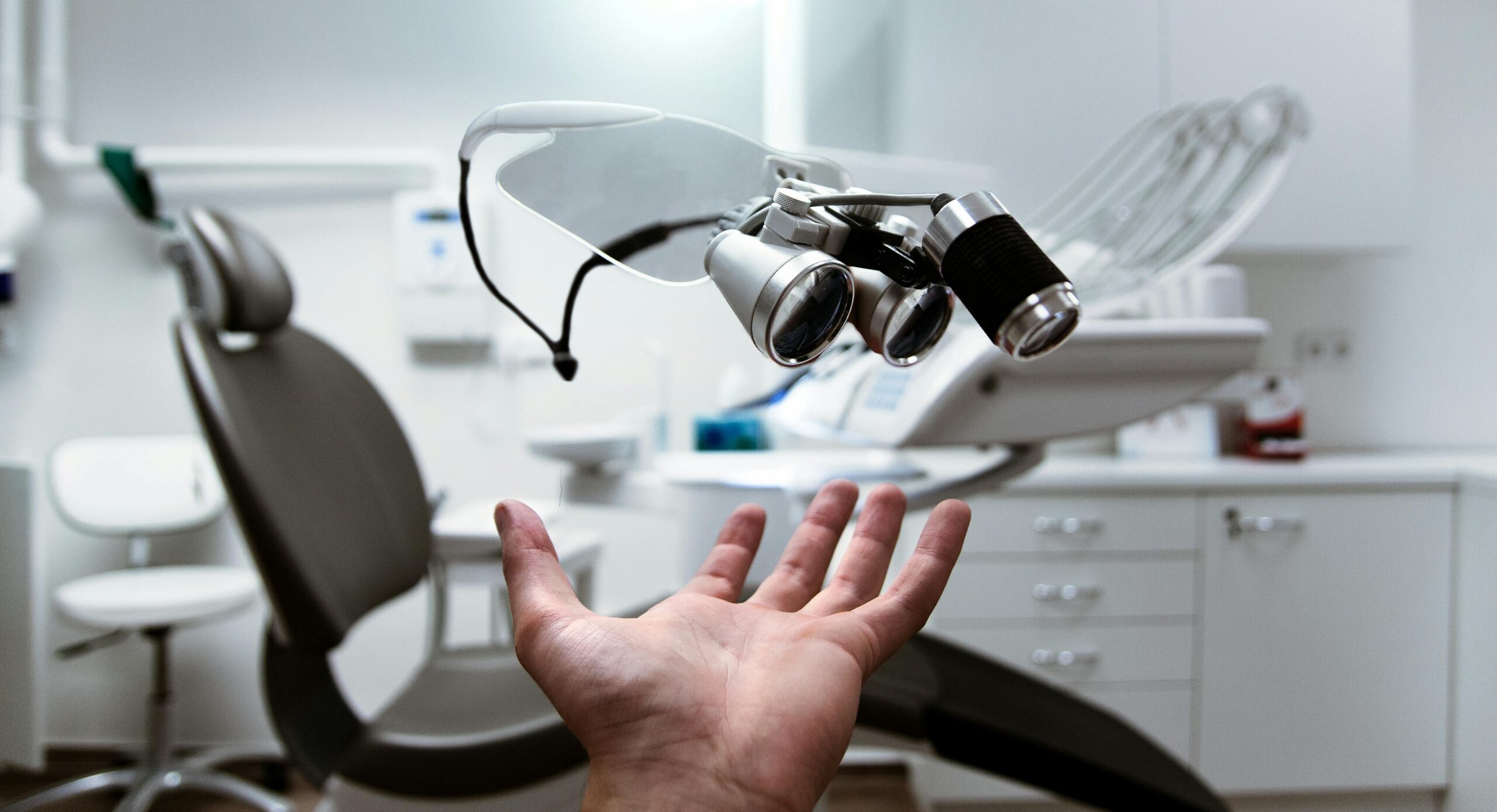Contents
- 1 Exploring the Applications of Machine Learning in Modern Healthcare
- 2 Intro
- 3 Enhancing Diagnostic Accuracy with Machine Learning
- 4 Personalized Medicine and Treatment Recommendations
- 5 Predicting Patient Outcomes with Machine Learning
- 6 Machine Learning in Drug Discovery and Development
- 7 Improving Healthcare Operations with Machine Learning
- 8 Challenges and Ethical Considerations in Applying ML to Healthcare
- 9 How has machine learning been used in healthcare?
- 10 What are the applications of artificial intelligence and machine learning in healthcare?
- 11 What is an example of supervised machine learning in healthcare?
Exploring the Applications of Machine Learning in Modern Healthcare
Intro
In recent years, the healthcare industry has seen an explosion in the use of technology to improve patient outcomes and overall efficiency. One of the most exciting developments in this field is the application of machine learning. Machine learning, a subset of artificial intelligence, involves training computer algorithms to learn from data and make predictions or decisions without explicit programming. In the context of healthcare, this technology has the potential to revolutionize the way we diagnose and treat diseases, improve medical decision-making, and even predict potential health risks. In this blog post, we will explore some of the most promising applications of machine learning in healthcare and discuss how they are changing the landscape of medicine. From early detection of diseases to personalized treatment plans, machine learning is paving the way for a more precise and efficient healthcare system. Let’s dive into the world of machine learning healthcare applications and see how it is transforming the way we approach healthcare.
Enhancing Diagnostic Accuracy with Machine Learning
Machine learning is dramatically transforming the landscape of medical diagnostics by enhancing the accuracy and efficiency of diagnostic processes. Traditional diagnostic methods often rely on manual interpretation of medical images, tests, and patient data, which can be subject to human error and variability. Machine learning algorithms, however, can analyze vast amounts of medical data much more rapidly and with higher precision. For instance, in radiology, machine learning models are being developed to identify anomalies in X-rays, MRIs, and CT scans with a level of accuracy that matches or even surpasses that of experienced radiologists. These algorithms are trained on thousands of images to recognize patterns indicative of specific diseases, such as tumors or fractures. Beyond imaging, machine learning applications in diagnostics also extend to analyzing electronic health records (EHRs) to identify early signs of diseases that may be overlooked by human practitioners. This capability not only aids in early disease detection but also reduces the chances of misdiagnosis, thereby ensuring that patients receive timely and appropriate treatment. The adoption of machine learning in diagnostic procedures promises a future where diagnoses are faster, more accurate, and more consistent, ultimately leading to better patient outcomes and a more efficient healthcare system.
Personalized Medicine and Treatment Recommendations
One of the most transformative machine learning healthcare applications lies in the realm of personalized medicine and treatment recommendations. Machine learning algorithms excel at sifting through and analyzing complex datasets, including genomic information, lifestyle factors, and clinical history, to identify unique patterns and relationships. By leveraging this capability, healthcare professionals can now tailor treatments to the individual characteristics of each patient. For example, in oncology, machine learning models analyze genetic mutations in cancer cells to predict which treatments will be most effective for a particular patient, thus sparing them from the trial and error of standard chemotherapy protocols. Similarly, in chronic disease management, algorithms can forecast disease progression and recommend lifestyle adjustments or interventions that are most likely to succeed based on the patient’s specific data profile. This approach not only enhances the efficacy of treatments but also significantly improves the quality of life for patients by minimizing side effects and focusing on prevention. As machine learning continues to evolve, personalized medicine stands at the forefront of a healthcare revolution, promising more nuanced and effective treatment plans that are as unique as the patients themselves.
Predicting Patient Outcomes with Machine Learning
Machine learning healthcare applications are not only reshaping diagnostics and treatment but are also revolutionizing the prediction of patient outcomes. By integrating and analyzing vast datasets, including patient health records, treatment histories, and real-time monitoring data, machine learning algorithms can predict how patients will respond to certain treatments, their risk of disease recurrence, and even their potential for recovery. For instance, in critical care units, machine learning models process data from various monitoring devices to forecast acute events, allowing healthcare providers to intervene preemptively. Similarly, in the management of chronic diseases such as diabetes, these algorithms can predict potential complications, enabling patients and doctors to adjust treatment plans proactively. This predictive capability is particularly valuable in determining the most effective care pathways for individual patients, potentially reducing hospital readmissions and improving long-term health outcomes. As machine learning technology advances, its role in forecasting patient outcomes will become increasingly integral, offering a powerful tool for personalized healthcare planning and management.
Machine Learning in Drug Discovery and Development
The realm of drug discovery and development is witnessing a significant transformation thanks to the integration of machine learning healthcare applications. By harnessing the power of machine learning, researchers are able to streamline the process of identifying novel drug candidates, predicting their efficacy, and optimizing their chemical structures for enhanced performance. This approach significantly accelerates the traditionally lengthy and costly phases of drug development, from initial screening to clinical trials. Machine learning algorithms analyze complex biochemical data and predict how different chemical compounds might interact with biological targets, thus identifying potential new medications much faster than conventional methods. Additionally, these algorithms can simulate and predict the outcomes of experiments, reducing the need for costly and time-consuming laboratory work. This not only speeds up the research process but also improves the success rate of drug development by pinpointing promising compounds early on. Furthermore, machine learning aids in personalizing drug therapies to individual patients’ genetic makeup, enhancing the effectiveness and reducing adverse effects. The application of machine learning in drug discovery and development embodies a groundbreaking shift towards more efficient, personalized, and innovative healthcare solutions.
Improving Healthcare Operations with Machine Learning
Machine learning is playing a pivotal role in enhancing healthcare operations, streamlining processes to boost efficiency and reduce costs. By analyzing patterns in healthcare delivery, machine learning algorithms can optimize scheduling, patient flow, and resource allocation, minimizing wait times and maximizing the use of medical facilities. In hospital settings, predictive analytics can forecast peak admission times, enabling administrators to allocate staff and resources more effectively. Additionally, machine learning assists in managing inventory, from medications to medical supplies, by predicting usage rates and automating restocking processes. This technological advancement extends to billing and claims processing, where algorithms can detect discrepancies and fraudulent claims, ensuring accuracy and expediting reimbursements. By automating routine tasks, healthcare providers can focus more on patient care rather than administrative duties. The integration of machine learning into healthcare operations not only enhances the patient experience but also supports healthcare professionals, allowing them to deliver more personalized and timely care. This optimization of healthcare operations represents a significant step forward in making healthcare systems more responsive, efficient, and cost-effective.
Challenges and Ethical Considerations in Applying ML to Healthcare
While the integration of applications of machine learning in healthcare offers transformative possibilities, it also presents significant challenges and ethical considerations. One primary concern is data privacy and security. The vast amounts of patient data required to train machine learning algorithms must be handled with utmost care to prevent breaches that could compromise patient confidentiality. Additionally, there’s the risk of bias in machine learning models, which can arise from skewed or incomplete datasets. This can lead to disparities in healthcare outcomes for underrepresented groups, raising ethical questions about equity and fairness. Ensuring transparency and explainability in machine learning healthcare applications is another challenge. Healthcare providers and patients alike must understand how decisions are made by these algorithms to trust and effectively use them. Moreover, regulatory hurdles must be navigated carefully to ensure these technologies are safe and effective while being adaptable to the rapid pace of innovation in machine learning. Addressing these challenges requires a collaborative effort among technologists, healthcare professionals, ethicists, and policymakers to harness the benefits of machine learning in healthcare responsibly and ethically.
How has machine learning been used in healthcare?
In the realm of healthcare, managing and interpreting vast amounts of data poses a significant challenge. Traditional methods often fall short in terms of efficiency and accuracy, leading to delays in diagnoses and treatments. Machine learning has emerged as a powerful tool to bridge this gap, enabling the processing of complex healthcare datasets with unprecedented speed and precision. By leveraging algorithms that can learn from data, machine learning has the capacity to uncover hidden patterns and insights without being explicitly programmed for specific tasks. This adaptability is crucial in handling the diverse and ever-evolving data generated in healthcare settings, from electronic health records to imaging studies and genetic information. Furthermore, machine learning models improve over time, refining their predictions and diagnoses as more data becomes available. This dynamic capability is instrumental in developing personalized medicine strategies, optimizing treatment plans, and enhancing patient outcomes. The use of machine learning in overcoming healthcare data challenges signifies a transformative shift towards more data-driven and patient-centric approaches in the medical field.
What are the applications of artificial intelligence and machine learning in healthcare?
One of the most significant applications of machine learning in healthcare is its ability to enhance operational efficiency and reduce costs. By integrating AI and machine learning algorithms, healthcare facilities can streamline administrative tasks, optimize scheduling, and automate patient flow management. This not only frees up valuable time for healthcare professionals to focus on patient care but also minimizes the risk of human error in administrative processes. Furthermore, predictive analytics, a key component of machine learning, can forecast patient admission rates and help manage hospital resources more effectively. This predictive capability ensures that staffing, bed allocation, and medical supplies are optimized according to demand, reducing unnecessary expenditure and improving patient care. Additionally, machine learning algorithms can analyze vast amounts of data to identify patterns that can lead to cost-saving interventions, such as reducing readmission rates by predicting patients at risk of complications. These applications of machine learning in healthcare demonstrate its potential to not only enhance the quality of care but also significantly reduce operational costs, making healthcare more accessible and sustainable.
What is an example of supervised machine learning in healthcare?
The applications of machine learning in healthcare are vast and hold the potential to radically transform how care is delivered. Yet, this burgeoning field is not without its challenges. One significant hurdle is the integration of machine learning systems into existing healthcare infrastructures, which are often outdated and fragmented. The privacy and security of patient data, a paramount concern in healthcare, also pose a complex challenge in the era of data-driven medicine. Additionally, the need for large, annotated datasets for training models can be a bottleneck, particularly in rare diseases where data is scarce. Despite these challenges, the future of machine learning in healthcare looks promising. Innovations in algorithm development and data processing are continually expanding the capabilities of machine learning applications, enabling more accurate and personalized care. As regulatory bodies adapt to the new digital health landscape and data-sharing protocols evolve, the integration of machine learning into healthcare will likely become more streamlined. The continued interdisciplinary collaboration between data scientists, clinicians, and policymakers will be key to overcoming the current challenges and unlocking the full potential of machine learning in healthcare.


